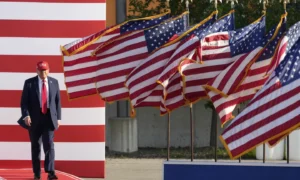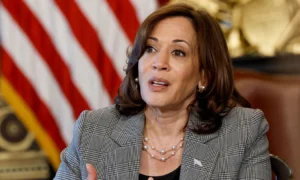The government keeps way too many secrets, the Biden administration asserts. The sprawling spy community — made up of 18 separate intelligence agencies — sees it quite differently.
But despite differing worldviews, the White House is quietly gearing up to try to pierce the veil, according to eight government officials and secrecy experts and internal documents. And it is enlisting a leading advocate for greater government transparency in the effort.
The National Security Council initiated a review this summer to determine how to overhaul the elaborate and often arbitrary classification system that Democrats and Republicans contend is undermining democracy and national security.
The initiative comes amid extraordinary scrutiny over the proper management of classified documents as the Justice Department investigates former President Donald Trump for allegedly mishandling sensitive national secrets after leaving the White House.
The Biden administration believes that reforming the classification system is needed to more broadly share intelligence between government agencies and with allies to more effectively combat potential enemies, particularly Russia and China’s aggressive disinformation campaigns.
Top military officials, for example, have called for loosening some restrictions on foreign threats — gathered by human spies, satellites or other collection tools — so that more government agencies, contractors and foreign governments can better coordinate military and diplomatic responses.
It’s also about making the national security bureaucracy more transparent to the American people, particularly past government actions — including potentially illegal activities — that have been shielded from the public for decades.
“It’s in our nation’s best interest to be as transparent as possible with the American public regarding U.S. government records and activities,” said an administration official privy to the review process. “We will look at how technological advancements can speed declassification … and permit greater information sharing.”
It remains to be seen how willing President Joe Biden is to go to battle with the CIA, the Pentagon and other intelligence agencies that have resisted his predecessors’ attempts or watered down their executive orders to compel them to share more information with other agencies and the American public.
“Modifications to the declassification executive orders generally happen at gunpoint for the intelligence agencies,” said Kel McClanahan, executive director of National Security Counselors, a non-profit public interest law firm that specializes in national security cases and has advised intelligence agencies. “The same people who screamed bloody murder before will be arguing against it.”
The year-long review marks the first such attempt to rein in the classification system in more than a decade, after what insiders and oversight authorities say has been frustratingly little progress since the Obama administration took on the task.
The National Archives and Records Administration estimates that government agencies create petabytes — or millions of gigabytes — of classified information each year, a trend that has only increased in the decades since the Sept. 11, 2001 terrorist attacks on the United States led already tight-lipped agencies to clamp down more.
Tens of billions of dollars are spent on classifying information, while only a fraction is dedicated to declassifying information.
“We believe there is immense potential to improve government efficiency and transparency simultaneously within this effort,” stated an internal June 2 memo from Yohannes Abraham, the executive secretary of the National Security Council.
A major focus, he said, is “revising or replacing” Executive Order 13526 that was issued by President Barack Obama in 2009 setting the parameters for classified national security information.
Up for review are the criteria for classification, how much is spent on declassification, and a reconsideration of what qualifies for the highest levels of protection, such as “special access programs,” the memo added.
The review is also scrubbing Executive Order 13556 governing “controlled unclassified information” that Obama also signed in 2010 — but was also widely considered to have fallen short of the goal of forcing into public view more government files.









